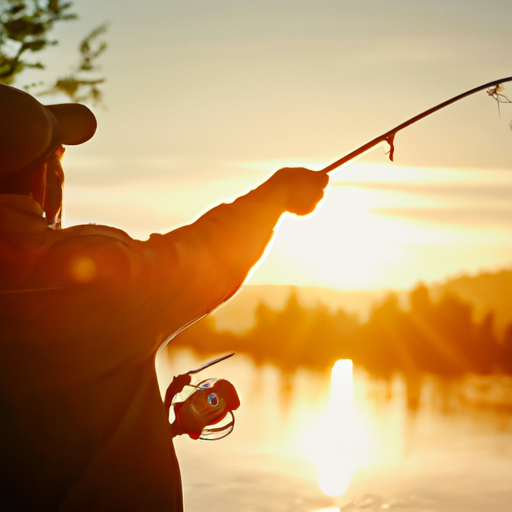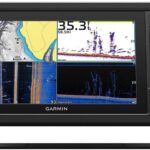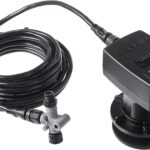Whether you’re a seasoned angler or just a hobbyist, rules and guidelines for fishing are necessary to keep in mind. This article, “The Importance of Staying Updated with Fishing Regulations and Licenses”, will highlight the essential aspects of these rules and their importance in preserving our natural habitats. It aims to cement your understanding of how critical it is to stay on top of these regulations and ensure that your fishing licenses are up-to-date. So, let’s equip you with the knowledge to fish responsibly, promoting sustainable pitching practices while keeping you compliant with the law.
Understanding the Basic Importance of Fishing Regulations and Licenses
Fishing is not just a leisure activity, but it’s also a means of livelihood for millions of people across the globe. But, like any activity associated with wildlife and the environment, fishing comes with its fair share of responsibilities. This is where fishing regulations and licenses come in, playing a crucial role in maintaining the balance of aquatic ecosystems and promoting sustainable fishing practices.
The Role of Fishing Regulations and Licences
Fishing regulations and licenses exist for the simple reason of ecological balance and the maintenance of fish populations. They are implemented by government agencies or local wildlife bodies to manage, conserve, and enhance the fish populations. Without these regulations, fish species may face the threat of overfishing, which can lead to their decline or even extinction.
Establishing a Sustainable Fishing Environment
Regulations and licenses are also necessary to establish a sustainable fishing environment. By setting up rules and limits on how much and what species can be caught, they encourage responsible fishing practices that do not deplete our fisheries, ensuring that future generations will have the opportunity to enjoy fishing as much as we do today.
Fishing Regulations: A Deeper Look
Fishing regulations are nuanced and complex, and they vary widely from one locality or state to another, making it necessary for every angler to understand the specifics before setting out on a fishing expedition.
Variations in Fishing Regulations
Different geographical areas have different fish populations, and therefore different challenges in managing them. As a result, fishing regulations can vary significantly from place to place. They might limit the type of fish you can catch, the size and number of fish you can keep, and the kind of fishing equipment you can use.
Setting Limitations on Fishing Methods and Techniques
Fishing regulations often dictate the methods and techniques that can be used in catching fish. These limitations are imposed to prevent overfishing and to protect certain fish populations from being targeted disproportionately.
Seasonal Fishing Restrictions
Regulations may also include seasonal restrictions that only allow fishing during certain times of the year. These are typically implemented to protect fish during their breeding season, ensuring the future health and sustainability of their populations.
Fishing Licenses: The Essentials
Just as driving requires a license, so does fishing in many places. Fishing licenses are a vital tool in the conservation of fish resources, acting as both a regulatory and a financial means of protecting our fisheries.
Types of Fishing Licenses
Fishing licenses can vary greatly, depending on factors such as the angler’s age, time duration, resident status, and the type of fish they plan to catch. It’s important to research and choose the license that best fits your fishing plans.
Why You Need a Fishing License
A fishing license is proof that you are legally permitted to fish in a certain area and are following the regulations. The funds attained from licenses often support conservation, habitat preservation, and other programs aimed at enhancing fish populations.
The Process of Acquiring a Fishing License
Acquiring a fishing license usually involves an application process, which could be done online or in-person at designated licensing offices. In general, you will need to provide identification and pay a fee to receive your license.
Enforcement of Fishing Laws and Regulations
Ensuring adherence to fishing laws and regulations is crucial to their effectiveness. This is where enforcement comes in.
Sanctions for Violations
Violations of the regulations, such as fishing without a license, overfishing, or using illegal methods, carry penalties. This can range from fines to the suspension of fishing privileges, and even imprisonment in extreme cases.
Role of Wildlife Officers and Ranger Patrollers
Wildlife officers and ranger patrollers play a substantial role in enforcing fishing laws and regulations. They patrol fishing areas, inspect catches and equipment, and check for valid fishing licenses. Their role is vital in ensuring that everyone follows the rules and contributes to the preservation of our fisheries.
Keeping Abreast with Changing Fishing Regulations
In the world of fishing, complacency is not an option. Regulations and laws change according to evolving environmental needs and fish populations’ statuses.
Importance of Staying Updated
To be a responsible angler, it’s important to stay updated with the current fishing regulations in your area. This will not only prevent you from inadvertently breaking the law but also ensure you’re doing your part in conserving our fisheries.
Impact of Changing Fish Populations on Regulations
Changes in fish population levels often trigger adjustments to fishing laws and regulations. As populations fluctuate, regulations are updated to ensure a balanced and healthy ecosystem.
Novel Laws and Changes in Existing Regulations
From time to time, novel laws may be introduced or existing ones may be changed to better manage fisheries resources. These can include new limits on catches, restrictions on fishing methods, or alterations to licensing requirements.
Financial Implications of Fishing Licenses
Having fishing licenses also have financial implications – both in contributing to conservation efforts and personal finance management.
Cost of Different Types of Fishing Licenses
The cost of fishing licenses varies, depending on factors such as the species you want to catch, where you want to fish, and the duration of the license.
Fines for Fishing Without a License
Fishing without a valid license can result in hefty fines and other penalties. These fines are designed to discourage illegal fishing practices and to reinforce the value of legal, regulated fishing.
Where Does the Money from Licenses Go?
The funds collected from fishing licenses are usually reinvested into conservation and management programs. This can include research, habitat protection, and educational initiatives that promote sustainable fishing.
Inter-State Fishing Regulations and Licenses
Navigating inter-state fishing regulations and licenses can be complex. Different states have unique laws and requirements for fishing licenses, underscoring the importance of educating yourself before fishing in a new state.
Differences in Laws Between States
The laws and regulations you need to follow can drastically change from one state to another. As such, you should take the time to familiarize yourself with these differences before setting off on a fishing trip to another state.
Recognizing Inter-State Fishing Rights
Inter-state fishing rights and reciprocal agreements allow for fishing across state lines under specific circumstances. However, you’ll still need to abide by each state’s individual regulations, even when fishing on shared bodies of water.
International Fishing Regulations and Treaties
Fishing becomes even more complex on an international level. This introduces a host of global treaties and international laws that aim to manage and protect the world’s fish populations.
Global Treaties on Fishing
There are numerous global treaties that govern international fishing. These treaties aim to preserve marine biodiversity, combat illegal fishing, and manage shared marine resources fairly and sustainably.
Illicit Fishing, Poaching and Global Efforts to Tackle Them
Illicit fishing, including illegal fishing and poaching, threatens the sustainability of our fisheries. Global efforts to combat these activities include international treaties, cooperative enforcement initiatives, and monitoring and surveillance systems.
Environmental Impact of Fishing Regulations
The environmental impact of fishing regulations is profound – a well-managed fishing industry helps ensure that ocean and freshwater ecosystems remain balanced and healthy for generations to come.
Promotion of Sustainable Fishing
Through regulation and enforcement, sustainable fishing practices can be promoted. The aim of sustainable fishing is to ensure that fish populations remain healthy and productive over the long run.
Protection of Endangered Species
Fishing regulations play an important role in protecting endangered species from overfishing. By regulating the amount and type of fish that can be caught, these laws help to protect vulnerable fish populations from extinction.
Educational Forums and Resources for Staying Updated
In the ever-evolving world of fishing, there are many resources available to help you stay abreast of the latest rules, learn about responsible fishing practices, and develop your skills as an angler.
Websites, Blogs and Online Resources
Many governmental agencies and fishing organizations maintain websites, blogs and offer other online resources that provide up-to-date information on fishing laws and regulations.
Seminars, Workshops and Regulatory Updates from Fishing Associations
Fishing associations often host seminars and workshops to educate their members and the wider public about changes in fishing laws and regulations. These forums are invaluable in promoting responsible fishing and fostering a strong, involved fishing community.
In conclusion, the importance of staying updated with fishing regulations and licenses cannot be overstated. It promotes responsible and sustainable fishing and contributes to the well-being of the aquatic ecosystems we love and enjoy. Whether you’re a seasoned angler or just getting started, take it upon yourself to learn about and adhere to these regulations – because ultimately, the future of fishing is in our hands.










